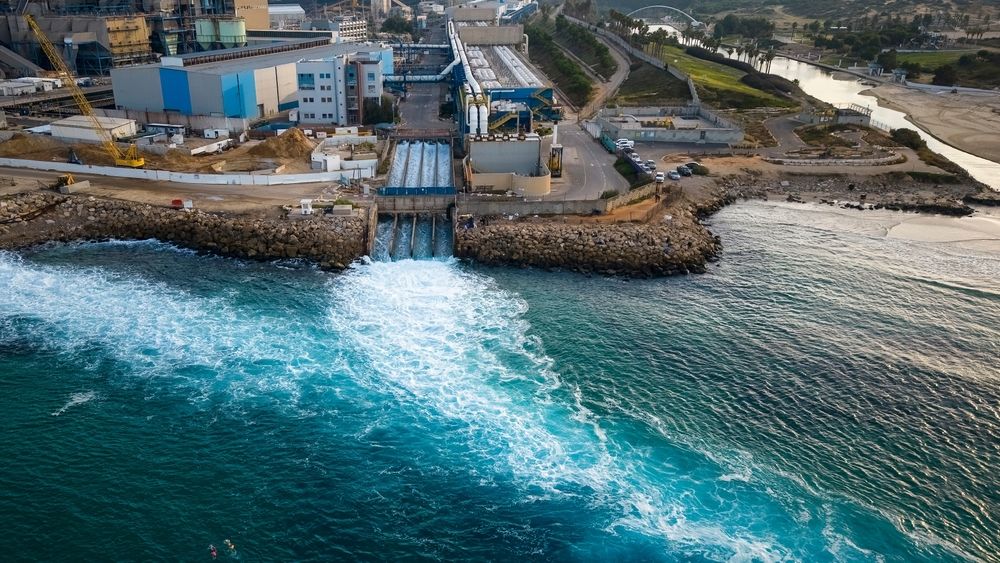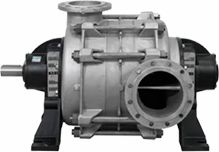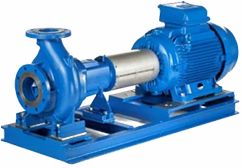Desalination
Desalination pumps are used to convert seawater into drinking water by removing salt and other impurities. This meets the growing demand for fresh water in the world.
Our customers rate us 8,6  based on 136 reviews
based on 136 reviews
an indispensable role in converting seawater into drinking water
Desalination pumps
Desalination pumps are invaluable to the global effort to meet the growing demand for freshwater. These pumps play an important role in converting seawater into drinking water by removing salt and other impurities. This process of desalination is especially relevant in dry areas where freshwater is scarce and the availability of seawater is much higher.
These pumps are designed to resist corrosion and wear from the salty environment in which they operate. They are usually made of materials such as titanium, bronze or stainless steel and are equipped with special seals and coatings to extend their service life. The use of these pumps not only reduces dependence on freshwater sources, but also reduces environmental pressure by using less ground and surface water for human consumption and irrigation.
Important features of desalination pumps
Desalination pumps have some important features that are critical to their operation and reliability. First, these pumps must be resistant to corrosion and erosion, as they are exposed to salt and other corrosive substances. In addition, they must have a high capacity to handle large volumes of water. It is also important that these pumps are energy efficient, as energy costs are an important part of the operating costs of desalination plants. Finally, these pumps must be reliable and require little maintenance, as breakdowns and maintenance can lead to significant costs.
The role of desalination pumps in the oil and gas industry.
Desalination pumps play an important role in the oil and gas industry. These pumps are used for desalination of water produced during oil and gas extraction. The water coming from the wells often contains large amounts of salt, making it unusable for human consumption and agriculture. By means of desalination, these salts can be removed and the water can be reused for the production of oil and gas.
Desalination pumps are also needed for injecting water into oil and gas fields to maintain pressure and boost production. The use of injected water is a critical part of the oil and gas recovery process as it can reduce reservoir pressure loss and increase production.

ADVICE AND SALES
THE BEST POSSIBLE SOLUTION FOR YOUR APPLICATION
There are many different types of pumps and just as many applications, such as a submersible, circulation or well pump. Due to this diversity of pumps, it is wise to be well informed about what type of pump is required before you purchase one or have it overhauled. The IPG team with various pump experts can always advise you on the best possible solution for your application and can also support you with the purchase and installation of the pump.
IPG has strong relationships with various pump manufacturers and can therefore give you good advice in purchasing many types and brands of pumps. For example, the Industrial Pump Group is the Dutch importer of SAER and official dealer of Lowara, Grundfos and Seepex, among others.
trends and developments
The future of desalination (pumps)
The global demand for freshwater continues to grow and the pressure on existing freshwater resources is increasing due to urbanization, climate change and economic growth. Desalination is therefore becoming increasingly important as a sustainable solution to meet the growing demand for freshwater. In this respect, the future of desalination pumps is of great importance.
One of the major trends in the desalination industry is the development of more energy efficient pumps. Since desalination is a very energy intensive process, it is important to increase the energy efficiency of desalination pumps. This allows desalination companies to reduce energy costs and reduce their carbon footprint.
Another trend is the development of pumps that are more resistant to heavy salt concentrations and particles in the water. This will extend the life of the pumps and reduce maintenance and repair costs.
In addition, research is being done into new materials for desalination pumps, such as carbon fibre, ceramics and nanotechnology. These materials are stronger and lighter than traditional materials and can improve the performance of desalination pumps.





